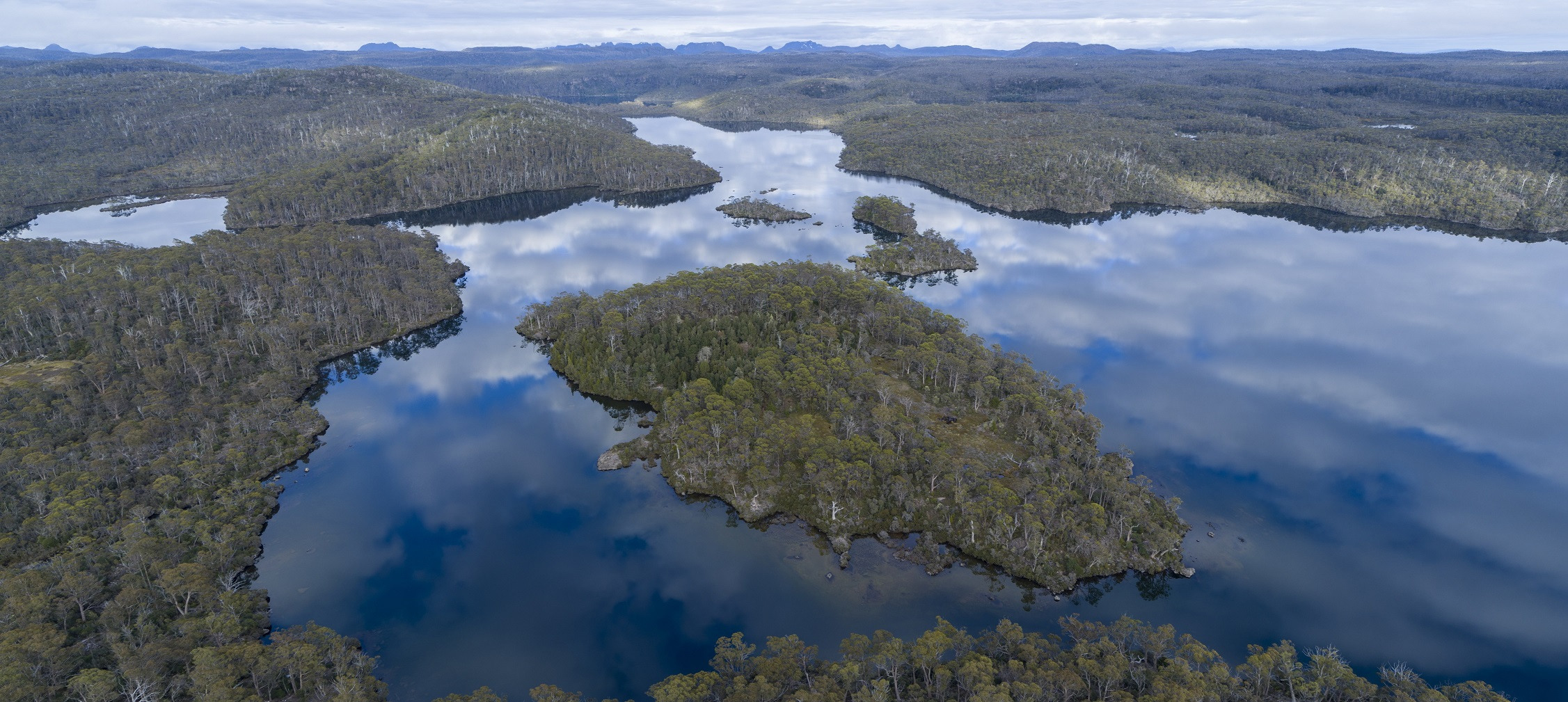Media Releases - 13 November 2019
Federal Court finds in favour of wilderness
- The Federal Court finds multiple failures in the decision-making process by the Federal government in approving the Wild Drake development proposal.
- Federal Court decision is an opportunity to do nature tourism in Tasmania transparently, collaboratively, and in a way that benefits nature
The Wilderness Society has welcomed the decision by the Federal Court to set aside the Federal Environment Minister’s notice approving the Wild Drake development proposal for helicopter-accessed luxury accommodation at Halls Island, Lake Malbena, inside the World Heritage-listed Walls of Jerusalem National Park.
“The Federal Court found in favour of two of the three grounds of our legal case. We also welcome the Court’s decision to grant costs in our favour,” said Tom Allen for the Wilderness Society Tasmania.
"This is a great outcome for the thousands of people in Tasmania who know that the State Government's policy to "unlock the parks" and the discredited tourism EOI process amounts to nothing more than the privatisation of public land for private profit, at the exclusion of the very people who actually own it - the public.
"This decision now creates a precedent that means the Tasmanian Wilderness World Heritage Area is better protected than before.
"In a nutshell, our case was that proposed development somewhere as special as World Heritage wilderness should have been subject to a detailed assessment under the Federal environment law, the Environment Protection and Biodiversity Conservation Act 1999 (EPBC Act), instead of being waved through based on the Tasmanian Parks and Wildlife Service’s non-statutory reserve activity assessment (RAA) and the proponent’s assurances that it would not have a significant environmental impact.
“We also argued that the Federal Department of Environment and Energy failed to properly apply the law by allowing the proposal to pass through the EPBC Act process without strict conditions being imposed and without having regard to proposed later stages of the development, including access to Aboriginal cultural heritage sites.
“While the the Federal Court ultimately found that the decision that the proposal did not need to undergo detailed assessment under the EPBC Act should stand (i.e. the decision that the proposal is “not a controlled action” remains), the Court did find multiple failures in the decision-making process by the Federal government. The Court also found that it was not appropriate for the development to go ahead without strict conditions to be given effect by what is called a “particular manner notice”. The purpose of this notice is to protect threatened species and the World Heritage values of the area.
“The Court also found that the environment minister's delegate should have considered “stage 2” of the proposal (which proposed new walking routes and access to sites of Aboriginal cultural heritage significance) in making his decision that the proposal was “not a controlled action”.”
The Federal Court also made a number of useful findings and observations that will guide assessments of other proposals in World Heritage areas around Australia.
“The Federal Court found that, to give effect to Australia’s international obligations under the World Heritage treaty, ordinarily detailed environmental assessments involving public participation will need to be conducted by the Department of Environment and Energy. We welcome the Court’s guidance on the proper application of the EPBC Act. As we have seen, guaranteed public participation has been lacking from the State Liberal Government’s tourism EOI and RAA processes.
“The Federal Court also found that the Federal Government cannot rely on the RAA to assess proposals in Tasmania’s Wilderness World Heritage Area. We welcome this finding, as the RAA is a non-statutory and arbitrary mechanism used by Tasmania’s Parks and Wildlife Service to secretively assess development proposals on reserved land.
“The Federal Court’s decision now creates an opportunity to get the tourism EOI process right.
“We invite the Minister for Parks, Peter Gutwein MP, to consider a new tourism EOI process that:
- Enjoys social licence
- Encourages sustainable tourism ventures in and supported by local communities
- Collaborates with people in Tasmania to collectively identify and progress tourism opportunities
- Establishes world-leading sustainable tourism criteria
- Leaves Tasmania’s National Parks and World Heritage wilderness intact as precious bastions of nature - exactly what they were intended to be
“This is a scenario that could deliver richer social, environmental and economic outcomes in contrast with the existing EOI scheme.
“Former UTAS economics professor Graeme Wells found developments on reserved land, such the Lake Malbena proposal, could, in fact, cost jobs, not create them. Furthermore, he found that such developments would not “provide a net benefit to the Tasmanian economy".
The State Government must now change its flawed and unpopular policy to “unlock the parks” and the wholly discredited tourism EOI process that delivers it.
"If the Federal Environment Minister Sussan Ley MP is to consider a revised Wild Drake proposal in future, we would expect that a fundamental requirement would be for a wilderness impact assessment to be conducted as part of any possible new conditions.
“We would also encourage those organisations and individuals with proposals that involve the privatisation of national parks or exclusion of existing users, to carefully consider their association with the State government’s discredited tourism EOI process ,” said Mr Allen.
The Wilderness Society would like to express its gratitude to its legal team: the lawyers at the Environmental Defenders Office Tasmania and our barrister, Emrys Nekvapil.
Contact, Tom Allen 0434 614 323
